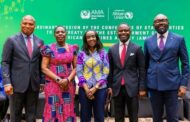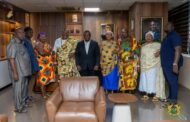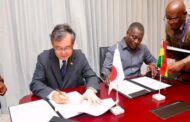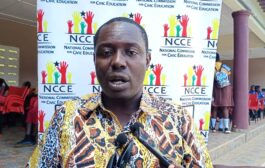Ghana has joined the world today to observe Intersex Awareness Day.
Intersex Awareness Day is internationally observed each October 26 to highlight human rights issues faced by intersex people around the world.
Intersex people are born with physical sex characteristics that do not fit medical and social norms for female or male bodies.
Some intersex people have genitals or internal sex organs that fall outside the male/female categories — such as a person with both ovarian and testicular tissues. Other intersex people have combinations of chromosomes that are different than XY (usually associated with male) and XX (usually associated with female), like XXY.
Some people are born with external genitals that fall into the typical male/female categories, but their internal organs or hormones don’t.
According to Intersex Ghana and Key Watch Ghana, groups advancing for the rights of the Intersex community in Ghana, due to lack of knowledge, intersex people in Ghana face stigma, bullying, medical misinformation, and non-consensual surgery.
The group has therefore petitioned Parliament against the anti-LGBTQI bill which they say will strip away the right and dignity of Intersex people.
Globally, the Intersex community is fighting against discrimination, stigmatization, violence, harmful practices in medical settings, and several other human rights violations which continue to occur around the world for people born with diverse sex characteristics.
A few days ago, fifty-two countries signed petitioned the U.N. Human Rights Council to protect the rights of intersex people.
“We call on all member states to take measures to combat violence and discrimination against intersex persons, develop policies in close consultations with those affected, ensure accountability, reverse discriminatory laws and provide victims with access to remedy,” said Amb. Elisabeth Tichy-Fisslberger, Austria’s permanent U.N. representative in Geneva, in a statement she read to the council on Monday said.
Aspects of their statement continued that “We also call on the Office of the High Commissioner for Human Rights and the Special Procedures of this Council to continue addressing and to scale up action against violence and discrimination based on sex characteristics within their mandates and in their work. States need to take strong and urgent action to uphold their obligation to ensure that intersex people live free from all types of violence and harmful practices, including in medical settings,”
They added. “Irreversible medical interventions (such as genital surgeries, hormonal interventions, and medical procedures intended to modify the sex characteristics of infants and children without their full, prior, and informed consent) continue to be the rule — not the exception — in the majority of U.N. member states.”
The U.S., India, Bosnia and Herzegovina, Fiji, Brazil, the Marshall Islands, Namibia, and Uruguay are among the countries that have signed the statement.
Source: Mybrytfmonline.com/Obed Ansah




















































